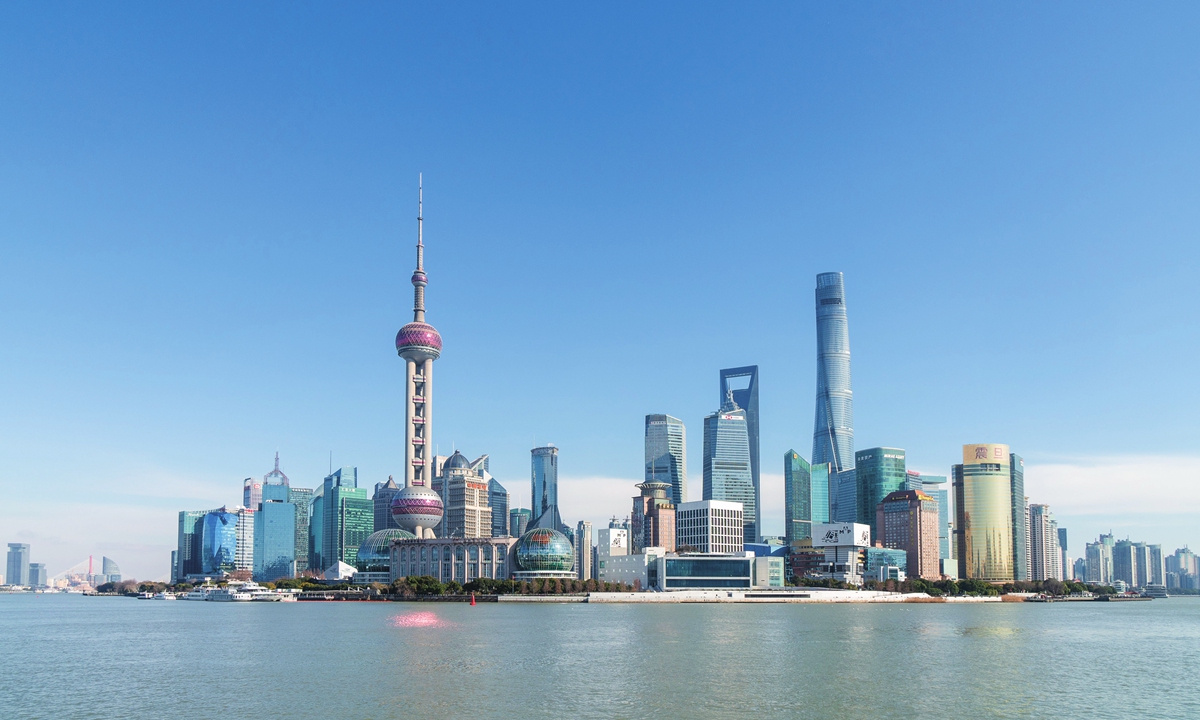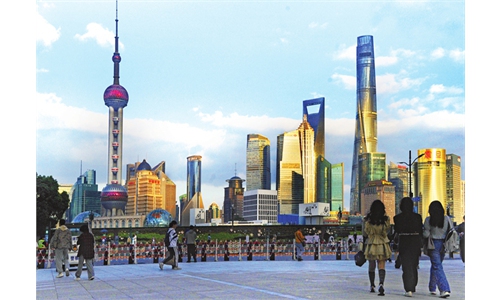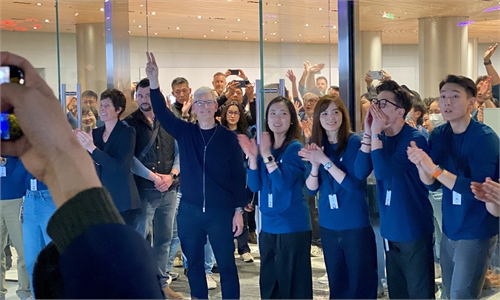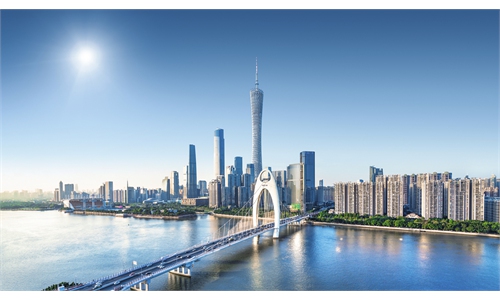China’s actual use of foreign capital in Q1 remains at historically high level, defying West’s ‘foreign capital withdrawal’ rhetoric

A view of the skyline of Lujiazui in Shanghai on January 24, 2024 Photo: VCG
China's actual use of foreign capital in the first quarter of this year remained at a historically high level, an official with China's Ministry of Commerce (MOFCOM) said at a press conference held by the State Council Information Office on Friday, defying claims by some Western media that foreign capital is withdrawing from China.
The country's continuous opening-up, supportive policies and industry upgrade are among the key drivers for more foreign capital, officials and experts said.
Friday's data also reflect the fact that the world's second largest economy continues to be attractive to foreign businesses, despite the West's intensified attempts at "decoupling" or de-risking.
Speaking at Friday's press conference, Guo Tingting, vice commerce minister said that the number of newly established foreign-invested enterprises in the first quarter of this year came at 12,000, an increase of 20.7 percent, maintaining the rapid growth trend from last year.
In terms of investment scale, the actual use of foreign capital reached 301.67 billion yuan ($41.67 billion), which was still at a historically high level, the vice minister said.
It is noteworthy that in terms of investment structure, the proportion of investment in high-tech manufacturing reached 12.5 percent during this period, an increase of 2.2 percentage points year-on-year, according to Guo.
Investment in the service industry, which is closely related to residents' lives, also witnessed rapid growth.
The growth was driven by multiple factors, particularly China's continuous opening-up efforts, improved market environment and industry upgrade, officials and experts said.
For example, the "Invest in China" series of activities as part of the government's opening-up effort has received an enthusiastic response. The first landmark event alone attracted more than 140 representatives of foreign companies and business associations from 17 countries and regions, according to the MOFCOM official on Friday.
The continuous optimization of China's business environment for foreign enterprises allows more of them to participate more fully in China's development and gives them a sense of achievement, Bai Ming, a research fellow at the Chinese Academy of International Trade and Economic Cooperation, told the Global Times on Friday.
Although there is foreign capital moving out of China, Bai said it is a part of capital market development. "Foreign investment comes and goes, much like the continuous flow of international capital markets, but the structure is constantly optimizing," Bai said.
As China pursues industry upgrades for high-quality development, many foreign investments, especially those with advanced technology, choose to expand their investments and outlays in China, experts said, defying some Western rhetoric that there is a trend of foreign capital leaving the country.
In the first quarter, the actual use of foreign investment in the manufacturing industry reached 81.06 billion yuan, of which investment in high-tech manufacturing reached 37.76 billion yuan, Ji Xiaofeng, an official with the department of foreign investment management under MOFCOM, told the press conference on Friday.
Data from some leading international consultancies also pointed to the positive trend.
The 2024 Kearney FDI Confidence Index released by American global management consulting firm Kearney shows China jumping from 7th position to 3rd, which shows that multinational companies will continue to expand their investment in China.
In the first quarter, China's GDP grew 5.3 percent, which was well above market expectations, as the country got off to a robust start, laying the foundation for achieving its goal of growing by around 5 percent for the whole year.
As the trend of China's economic development is further consolidated, foreign companies see new opportunities for growth in areas such as green transformation and digitalization.
Meanwhile, more policy support is also in place to boost foreign investment.
On Friday, MOFCOM, together with nine other government departments, including the Ministry of Foreign Affairs, the National Development and Reform Commission, the Ministry of Industry and Information Technology and the China Securities Regulatory Commission, issued 16 specific measures to further support overseas institutions' investment in domestic technology-based enterprises.
These measures include implementing differentiated supervision, supporting bond issuance and facilitating personnel exchanges.
On the same day, China's top securities regulator issued 16 measures to boost capital markets' support for high-tech companies, including setting up green channels for fundraising, in a bid to boost innovation and development of new quality productive forces.
In March, China's State Council, the cabinet, issued an action plan comprising 24 specific pro-foreign investment measures to attract foreign investment, facilitate data flows and business travel. The action plan demonstrates the Chinese government's determination and efforts to attract foreign investment, which plays a positive role in further promoting high-level opening-up, experts said.
Looking ahead, Ji said that MOFCOM is further easing barriers to foreign investment, including reasonably reducing the negative list for foreign investment access, comprehensively abolishing access restrictions in the manufacturing sector, and relaxing market access in the medical, telecommunications and other service industries.



